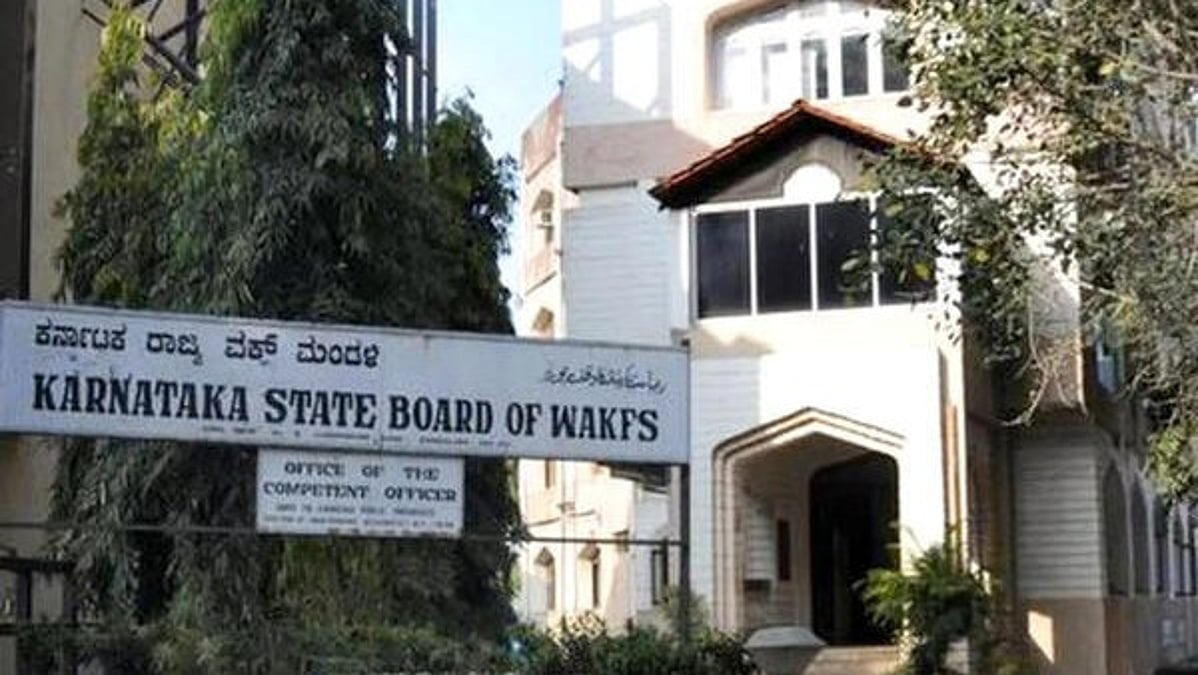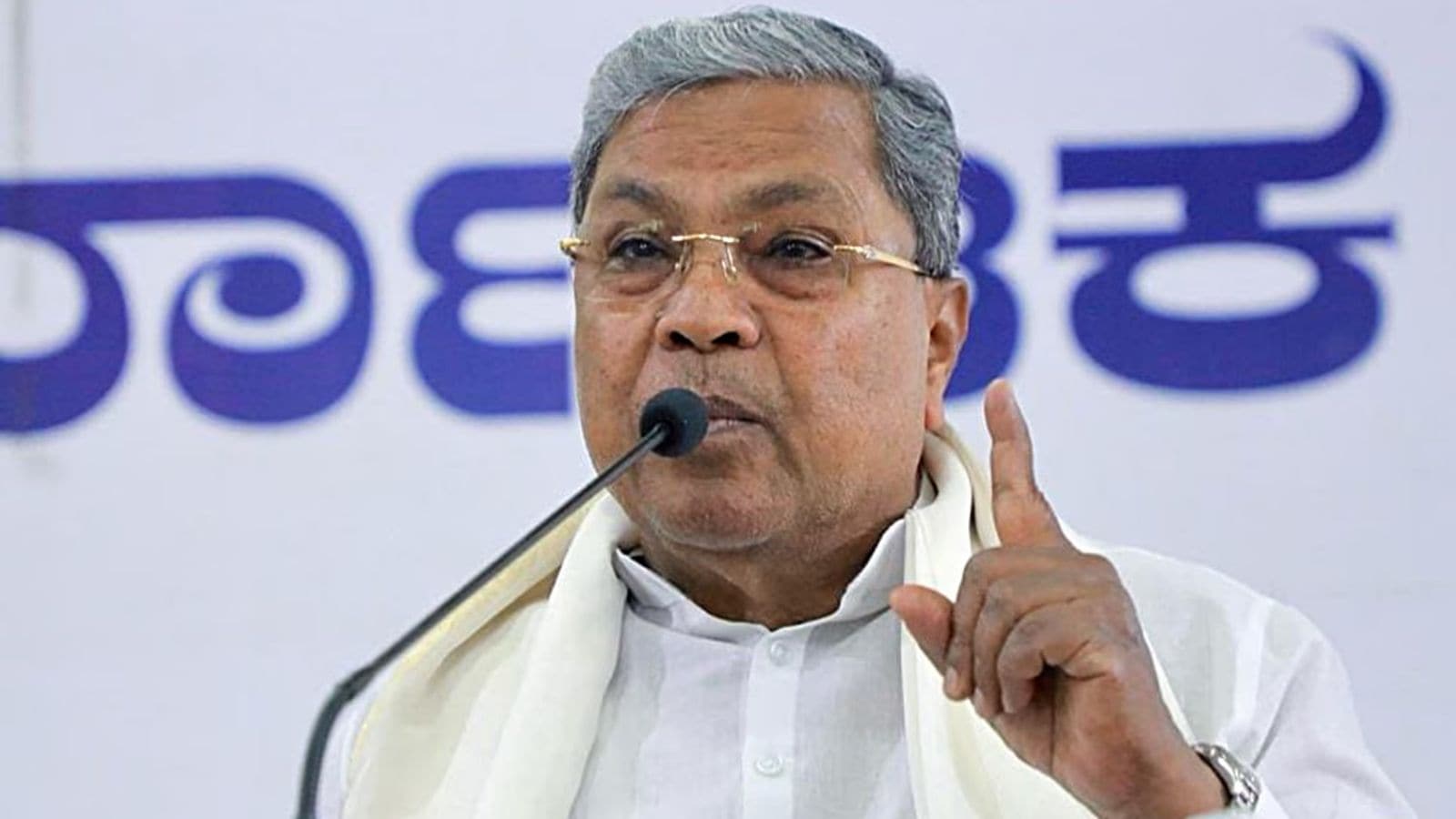The Karnataka High Court has strongly criticized the state government for allowing a protest against the Waqf Act to proceed, especially considering the pendency of a related case before the Supreme Court. Justice M Nagaprasanna, presiding over the matter, expressed serious reservations about the state’s decision, emphasizing that permitting such a demonstration while the apex court is seized of the issue is not only inappropriate but could also potentially influence the judicial process.
This rebuke underscores the delicate balance between the right to protest and the need to uphold judicial decorum, raising critical questions about the state’s handling of sensitive issues with legal ramifications. This article delves into the details of the High Court’s observations, the implications of the protest, and the broader context of the ongoing legal battles surrounding the Waqf Act.
High Court’s Scathing Remarks: Questioning State’s Discretion
Justice M Nagaprasanna of the Karnataka High Court strongly criticized the state government for permitting a protest against the Waqf (Amendment) Act while the matter is still pending before the Supreme Court. The judge questioned the rationale behind allowing such a demonstration, emphasizing that the Supreme Court is currently seized of the issue and that permitting protests on a sub judice matter is inappropriate. He remarked, “What protest are you permitting now when the apex court is hearing the matter?” This pointed observation underlined concerns that such protests could be perceived as attempts to influence the judicial process or exert undue pressure on the courts, thereby undermining the integrity of the judiciary.
The court further highlighted that the Supreme Court has expressed displeasure over similar protests elsewhere, including in West Bengal’s Murshidabad, which witnessed communal violence. Justice Nagaprasanna stressed that as a state, Karnataka should not have allowed any protests on an issue that is under judicial consideration. The High Court was hearing a petition filed by a Mangaluru resident, Rajesh A, who challenged a police advisory that directed bus operators to suspend services along a section of National Highway 73 during the protest.
The petitioner argued that the advisory caused undue hardship to the public by disrupting essential transport services. While the state government claimed the advisory was issued to ensure free flow of traffic and suggested alternate routes, the court refused to accept this explanation, focusing instead on the core issue of the state’s decision to permit the protest in the first place.
Justice Nagaprasanna also directed the state government to ensure that protests do not obstruct public roads and that they are held only at designated locations with official permission. The court asserted firmly, “If there is no permission, there is no protest,” underscoring the need for lawful and orderly conduct of demonstrations. The High Court’s remarks serve as a reminder that while the right to protest is fundamental, it must be exercised responsibly and with due regard to the ongoing judicial process. The court scheduled the matter for further hearing on April 23, signaling its continued scrutiny over the state’s handling of the protest and related administrative measures.
This judicial reprimand comes amid widespread opposition to the amended Waqf Act, which has triggered protests from various sections of the Muslim community and others. The amendments have been challenged in the Supreme Court by members of Parliament, religious bodies, and political parties on grounds that they violate constitutional protections related to religious freedom. The controversy centers on provisions that give government officials overriding powers in waqf boards and alter the composition of these bodies, raising fears of erosion of community autonomy. The Karnataka High Court’s observations emphasize the delicate balance between safeguarding democratic rights and maintaining the sanctity of judicial proceedings, especially when sensitive and contested laws are under review by the highest court.

Background: The Waqf Act and the Ongoing Legal Challenges
The Waqf Act of 1995, which governs the administration and management of waqf properties in India, has been at the center of significant legal and public debate. Waqf properties are assets—movable or immovable—permanently dedicated for religious, charitable, or pious purposes under Muslim law. Once a property is declared as waqf, it is managed by state waqf boards and its ownership is considered to vest in God, making it inalienable and outside the realm of sale, transfer, or inheritance. The Act established a framework for the creation, registration, and supervision of waqf properties, and created waqf boards in every state to oversee their management.
Over the years, the Act has faced numerous legal challenges and criticism, particularly regarding the extent of powers vested in waqf boards. Critics argue that certain provisions, especially those allowing the waqf boards to unilaterally declare any property as waqf property, can infringe upon the rights of existing property owners and raise questions about due process and secularism. There have been instances where private properties or government land have been claimed as waqf, leading to protracted legal disputes and public unrest. The lack of adequate safeguards for non-Muslims and property owners has been a recurring concern, fueling demands for reform and greater transparency in the functioning of waqf institutions.
Currently, the Supreme Court is hearing a batch of petitions challenging the constitutional validity of various sections of the Waqf Act. The petitions focus on contentious issues such as the waqf board’s authority to declare properties as waqf, the process for dispute resolution, and the absence of robust checks and balances to protect the interests of non-Muslims and other stakeholders. The ongoing legal proceedings reflect deep-seated concerns about the impact of the Act on property rights, religious freedom, and the balance of power between religious institutions and the state. The outcome of these cases is likely to have far-reaching implications for property law, minority rights, and the secular fabric of the country.
Implications of the Protest: Upholding Judicial Integrity
The protest against the Waqf Act, which took place while the matter is sub judice before the Supreme Court, raises significant questions about the appropriate boundaries of public expression and its potential impact on judicial proceedings. While proponents of the protest argue that it is a legitimate exercise of the right to freedom of speech and assembly, critics contend that it could be seen as an attempt to influence the outcome of the case or create a biased public narrative.
The High Court’s intervention underscores the importance of maintaining judicial integrity and ensuring that the courts are able to adjudicate matters without undue external pressure. The state government’s decision to allow the protest has been called into question, with concerns raised about its responsibility to uphold the authority of the judiciary and prevent any actions that could be perceived as undermining the legal process.

Broader Context: Balancing Rights and Responsibilities
The Karnataka High Court’s rebuke of the state government for permitting a protest against the Waqf (Amendment) Act comes at a time of heightened national debate about the boundaries between fundamental rights and the responsibilities of the state. Justice M Nagaprasanna’s observations made it clear that while the right to protest is a fundamental aspect of democracy, it is not absolute and must be balanced against the need to maintain public order and respect the ongoing judicial process.
The court specifically highlighted that the matter concerning the Waqf Act is currently under consideration by the Supreme Court, and allowing such protests while the issue is sub judice could be seen as an attempt to influence or undermine the judicial process. The High Court’s directive was unequivocal: protests must not obstruct public roads, must be held only in designated areas, and require official permission from authorities.
“If there is no permission, there is no protest,” the court asserted, emphasizing the procedural safeguards that must be in place to prevent disruption and ensure public safety. This stance was prompted by a petition from a Mangaluru resident, Rajesh A, who challenged a police advisory directing bus operators to suspend services along a section of National Highway 73 during the protest.
The petitioner argued that the advisory caused undue hardship to the public by disrupting essential transport services, a concern the court took seriously in its deliberations. The state government, in its response, informed the court that it had revised the initial directive and assured that normal traffic would be maintained, though heavy and medium commercial vehicles were advised to use alternative routes as a precaution.
Nevertheless, the High Court’s intervention serves as a pointed reminder that the state has a duty not just to facilitate democratic rights, but also to ensure that these rights are exercised within the framework of the law and do not infringe upon the rights of others or the functioning of the judiciary. The court’s insistence on protests being held only with permission and in designated spaces is a reaffirmation of the principle that rights and responsibilities must go hand in hand.
As the Supreme Court continues to hear the challenges to the Waqf Act, the High Court’s observations underscore the need for the state government to exercise caution and avoid any actions that could be construed as prejudicing the outcome of the case or eroding public confidence in the judiciary. The episode also highlights the delicate balance required in a democracy: protecting the right to dissent and protest, while simultaneously upholding the rule of law and judicial integrity. The High Court’s intervention thus not only addresses the immediate procedural concerns but also sets an important precedent for how sensitive legal and constitutional issues should be managed in the public sphere while they are under judicial consideration.
Follow: WAQF Website
Also Read: Vice President Dhankhar’s 7 Explosive Warnings on Supreme Court Overreach

